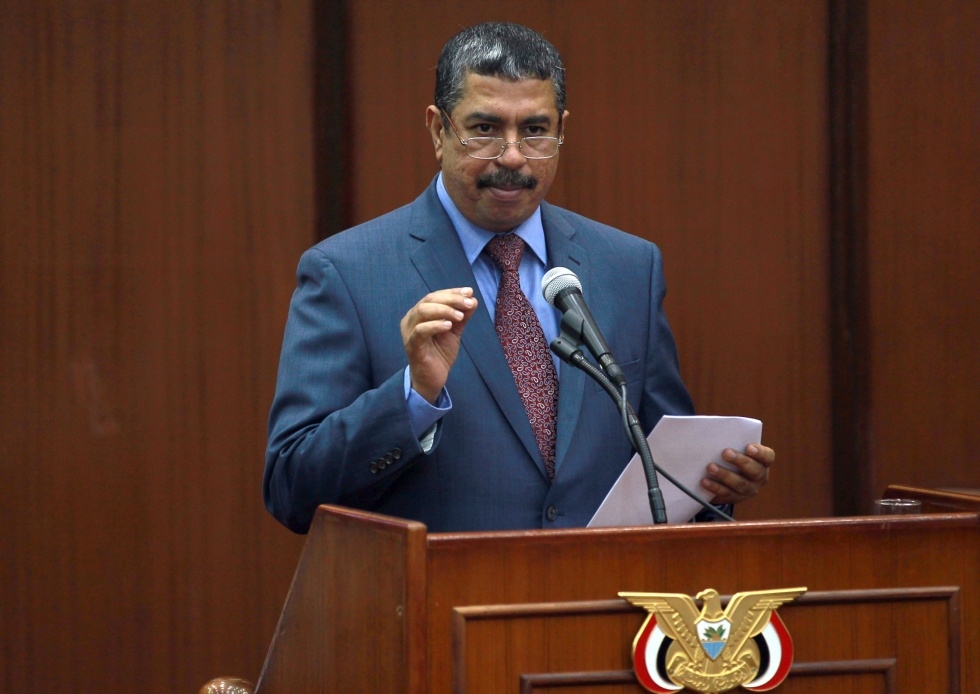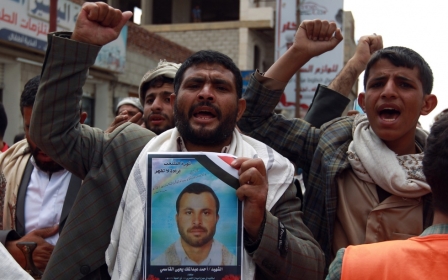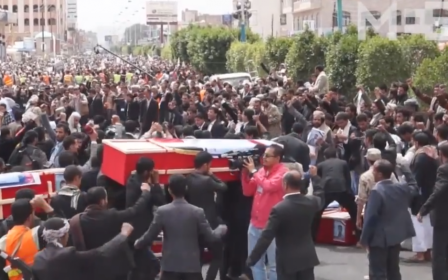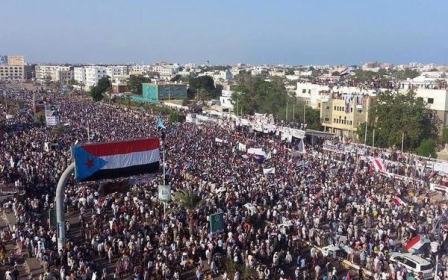Many challenges ahead for Yemen's new Prime Minister

Yemen has a new Prime Minister, Khaled Mahfoud Bahah. As an economist, ambassador and former envoy to the UN, he has iron clad credentials, but the task ahead is daunting to say the least.
Just days into his new post, Bahah is already having to grapple with forming a new government, putting Yemen’s transition back on track, negotiating with the Houthi rebels, and fighting off the bloody al-Qaeda insurgency.
Despite Bahah’s experience - he has served as Yemen’s minister of oil and minerals and been his country’s ambassador to Canada - most analysts and commentators agree that Bahah’s new post is fraught with difficulties.
"Bahah was chosen because he is seen as neutral; is not involved in corruption; and he has the approval of the country’s major political forces," Faris al-Saqqaf, an advisor to President Abd Rabbu Monsur Hadi, told MEE.
However, Bahah’s immediate challenge is overseeing a UN-brokered agreement signed with Houthi rebels that involves a new government being formed in exchange for the Houthis returning control of government buildings they captured last month, Saqqaf explained.
"He will have to restore the state's influence and get back looted weapons,” he said.
This is no small task. So far, the Houthi–Shiite rebels from northern Yemen who have seized parts of the country have shown no signs of backing down.
Since marching into the capital Sana’a on 21 September and taking over many key government buildings, the Houthis have vied to expand their influence.
Last week they rejected the appointment of Ahmed Awad bin Mubarak as prime minister and called for thousands of their supporters to take to the streets in protest.
On Tuesday, its fighters pushed west from the capital into the province of Hodeida and seized a strategic port there, just hours after Bahah was named as the new PM.
The Houthis now seem to be pushing even further south, with the rebels reportedly capturing the city of Ibb near the al-Qaeda stronghold of al-Bayda on Wednesday.
Al-Qaeda
Aside from the Houthi threat, which has dominated Yemen's political landscape in recent months, the new prime minister will also have to handle the simmering al-Qaeda insurgency in the country that has been raging for years and has been pushed into a volatile new direction since the Houthi takeover of Sana’a.
A day before Bahah’s instatement, al-Qaeda's operatives in the southern province of Baydha released a video showing their leader Nabiel al-Dhahab vowing to send car bombs to target Houthi gatherings and US positions in Yemen.
"By God, we will burn their [Houthis] bodies with car bombs… The war has just started with you," al-Dhahab said to a gathering of bearded, armed men.
Al-Qaeda followed up their threats on Tuesday by targeting a gathering of the Houthis in Baydha. Security officials said that four people were killed from both sides when AQAP militants ambushed a group of Houthi fighters in Radda district.
The warning and subsequent attack came less than a week after an al-Qaeda-link blast killed more than 40 Houthi protesters in the capital.
Observers fear that such threats by al-Qaeda could plunge the country into, yet unknown, sectarian violence akin to Shia-Sunnis bloodletting seen in Iraq and Syria.
South says no
In addition to facing down the al-Qaeda and Houthi threats, Bahah will also have to confront a growing southern separatist movement which has caused many Yemenis outside of the capital to view his appointment with distrust and, in some cases, outright rejection.
Despite Bahah hailing from the southern town of Eddis al-Shargia, factions of Yemen’s southern separatist movement promptly lashed out at the new PM.
On Tuesday, thousands of pro-separatist protesters massed in the port city of Aden to call for the termination of the unity agreement that saw the formerly separate states of North and South Yemen merge in 1990.
"Protesters in Aden removed the flag of the Yemeni republic," said Saeed Salim al-Jariri, the head of a pro-separatist intellectual group in Aden.
Jariri told MEE that despite his southern roots, Prime Minister Bahah is unlikely to win over southern support and smooth over the differences between Yemen's fragmented regions.
"He’s a token southerner," said Jarari. “He does not represent us.”
That sentiment was echoed in Bahah's hometown, where separatist sentiment runs high.
"Bahah should work on giving the people of the south [of Yemen] their freedom and independence and help them in build their own state." he said. “That is the only way we will accept him.”
Pro-secession sentiments have plagued the relatively energy-rich south ever since unity helped spark a civil war between the north and south in 1994. The north came out triumphant but southerners have since complained that the northerners exploited their victory and have confiscated southern lands and monopolised power and wealth, fanning further resentment.
The streets react
For the challenges ahead, however, Bahah’s appointment has been greeted with relief in parts of Yemen.
Most ordinary Yemenis explain that they just want stability and economic prosperity to return to the country which is still reeling from the knock-on effects of the Arab Spring and suffers from mass unemployment and poverty.
"We want him to achieve reconciliation, restore the state's dignity and security and stability and replace armed militants with security forces," said Yahiya Kadish, a journalist from the north-western Yemen province of Hajja.
Saleh Ahmed, headmaster of a girl’s primary school in the remote southeastern district of Duwn, also urged Bahah to act swiftly and to build up a strong state.
"We want a state of law and order. He should establish the principle of justice and equality," she said.
New MEE newsletter: Jerusalem Dispatch
Sign up to get the latest insights and analysis on Israel-Palestine, alongside Turkey Unpacked and other MEE newsletters
Middle East Eye delivers independent and unrivalled coverage and analysis of the Middle East, North Africa and beyond. To learn more about republishing this content and the associated fees, please fill out this form. More about MEE can be found here.




